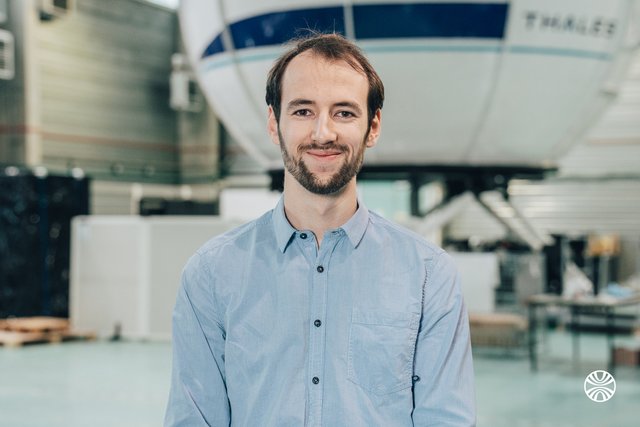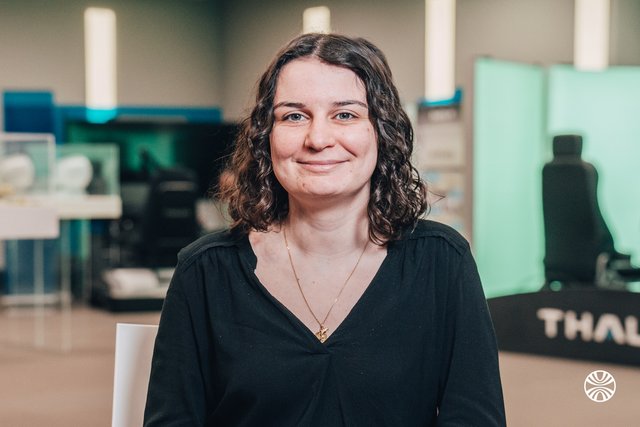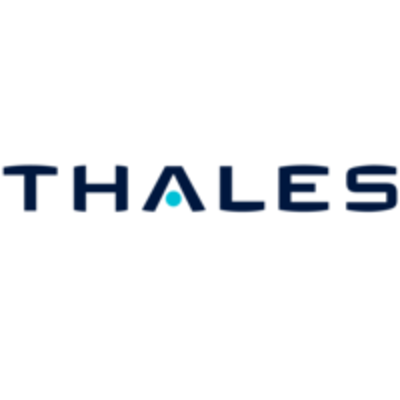THESE - Physical Layer Security using Directional Modulation -F/H
The position
Job description
Lieu : Toulouse, France
Construisons ensemble un avenir de confiance
Thales est un leader mondial des hautes technologies spécialisé dans trois secteurs d’activité : Défense & Sécurité, Aéronautique & Spatial, et Cyber & Digital. Il développe des produits et solutions qui contribuent à un monde plus sûr, plus respectueux de l’environnement et plus inclusif. Le Groupe investit près de 4 milliards d’euros par an en Recherche & Développement, notamment dans des domaines clés de l’innovation tels que l’IA, la cybersécurité, le quantique, les technologies du cloud et la 6G. Thales compte près de 81 000 collaborateurs dans 68 pays.
Nos engagements, vos avantages
Une réussite portée par notre excellence technologique, votre expérience et notre ambition partagée
Un package de rémunération attractif
Un développement des compétences en continu : parcours de formation, académies et communautés internes
Un environnement inclusif, bienveillant et respectant l’équilibre des collaborateurs
Un engagement sociétal et environnemental reconnu
Votre quotidien
Le site de Toulouse Champollion regroupe les activités de l’ingénierie de systèmes satellites, de la conception et réalisation de charges utiles, du développement et la qualification de segments sol, il intègre un centre de recherche et un accélérateur industriel de start-up et ventures ainsi que les activités dédiées à la science des basses températures, plus précisément au développement et à la production de refroidisseurs micromécaniques pour des marchés exigeants.Physical layer security is becoming increasingly critical in emerging satellite networks, which support vital services like global communications, Earth observation, and resilient navigation. Unlike traditional encryption methods that rely on computational complexity and are vulnerable to future quantum attacks, physical layer wireless security technologies encrypt the conveyed information through the physical properties of radio signals themselves.
This can be achieved by employing either the inherently random nature of wireless channels or the purposely generated random signals. This approach offers a quantum-resistant safeguard, as it does not depend on mathematical problems that quantum computers could crack efficiently. In satellite systems, where long-range links and open broadcast environments heighten exposure to eavesdropping and jamming, physical layer security provides a lightweight, scalable, and inherently robust defence mechanism. As satellite constellations expand and interconnect, embedding security directly into the physical transmission layer ensures enduring protection against both current and next-generation threats.
Advancing physical layer security in satellite networks requires an interdisciplinary approach, with a strong emphasis on the joint development of radio frequency (RF) hardware and signal processing techniques. Unlike terrestrial systems, satellites operate in highly dynamic and often unpredictable environments, where rapidly changing channel conditions and long-range vulnerabilities can be exploited by adversaries. Achieving secure and reliable communication under these conditions demands RF front-ends capable of adapting to environmental variations while maintaining signal integrity and confidentiality—necessitating innovations in antenna design, beamforming, and frequency agility. At the same time, signal processing methods must evolve to compensate hardware imperfection and signal dynamics, e.g. the changing Doppler effects. The role of AI is also an emerging enabler. Because hardware performance and algorithmic strategies are deeply interdependent, independent development is inadequate; instead, integrated design methodologies are essential to create practical and resilient physical layer security solutions across diverse satellite architectures and mission requirements.
The project will include the following core activities:
1. Identify a use case where physical layer security can provide added value to existing or emerging satellite services
2. Investigate suitable analogue, RF and digital technologies that provide pertinent solution for this use case
3. Demonstrate by means of experimental and simulated results the performance of the proposed physical layer security system
Research field:
• Electronic engineering
• Telecommunication Engineering
Required skills:
• Antenna and Microwave Engineering
• Signal processing
• Embedded systems
• Programming (Matlab, C, C++, Python, LabVIEW)
The Thesis will include 12 months at Thales Alenia Space in Toulouse, followed by 24 months at the Heriot-Watt University, United Kingdom, Edinburgh, and than a 6 months secondement at Thales Alenia Space in Toulouse . In total the PhD will span 36 months.
Thales, entreprise Handi-Engagée, reconnait tous les talents. La diversité est notre meilleur atout. Postulez et rejoignez nous !Want to know more?

Rencontrez Pierre, Ingénieur logiciel système

Rencontrez Milène, Ingénieur en aéronautique
These job openings might interest you!
These companies are also recruiting for the position of “Network Engineering and Administration”.
THESE - Radio Resource Management for LEO Constellations -F/H
ThalesOtherToulouseSoftware, Cyber Security80,000 employeesAtlassian Administrator
Valiantys GroupOtherToulouseA few days at homeSoftware, IT / Digital300 employees





